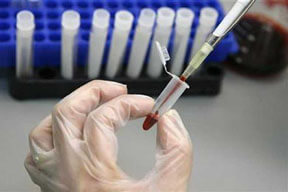
WASHINGTON: The first clinical trial of an experimental antibody therapy for HIV has shown that it can dramatically reduce the amount of virus present in a patient’s blood, scientists say.
Researchers in a study conducted in Michel Nussenzweig’s Laboratory of Molecular Immunology at Rockefeller University found that administration of a potent antibody, called 3BNC117, can catch HIV off guard and reduce viral loads.
HIV antibodies previously tested in humans had shown disappointing results. 3BNC117 belongs to a new generation of broadly neutralizing antibodies that potently fight a wide range of HIV strains.
“What’s special about these antibodies is that they have activity against over 80 per cent of HIV strains and they are extremely potent,” said Marina Caskey, assistant professor of clinical investigation in the Nussenzweig lab and co-first author of the study.
The antibody 3BN117, which was originally isolated by Johannes Scheid in the Nussenzweig laboratory, targets the CD4 binding site of the HIV envelope, and the CD4 receptor is the primary site of attachment of HIV to host cells, 3BNC117 shows activity against 195 out of 237 HIV strains.
In the new study, uninfected and HIV-infected individuals were intravenously given a single dose of the antibody and monitored for 56 days.
At the highest dosage level tested in the study, 30 milligrams per kilogram of weight, all eight infected individuals treated showed up to 300-fold decreases in the amount of virus measured in their blood, with most reaching their lowest viral load one week after treatment.
The drop in viral load depended on the individual’s starting viral load and also the sensitivity of their particular strains of HIV to the antibody.
This is the first time that the new generation of HIV antibodies has been tested in humans. Not only was a single dose of 3BN117 well tolerated and effective in temporarily reducing viral loads, in some individuals it remained active in the body for a long time. -PTI






